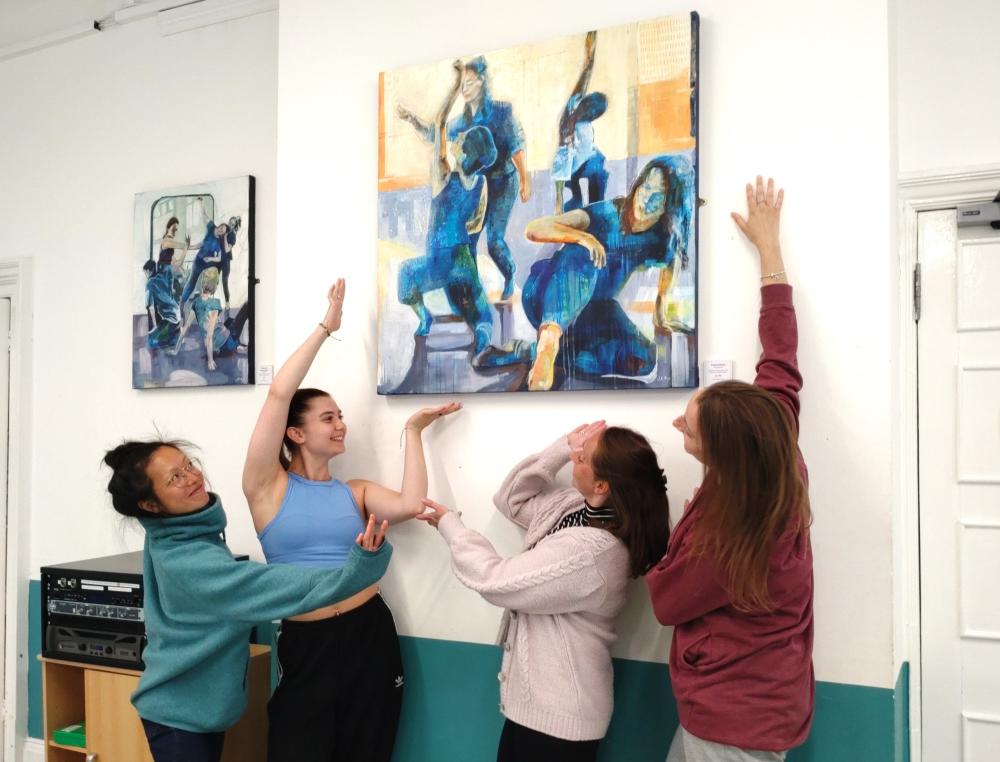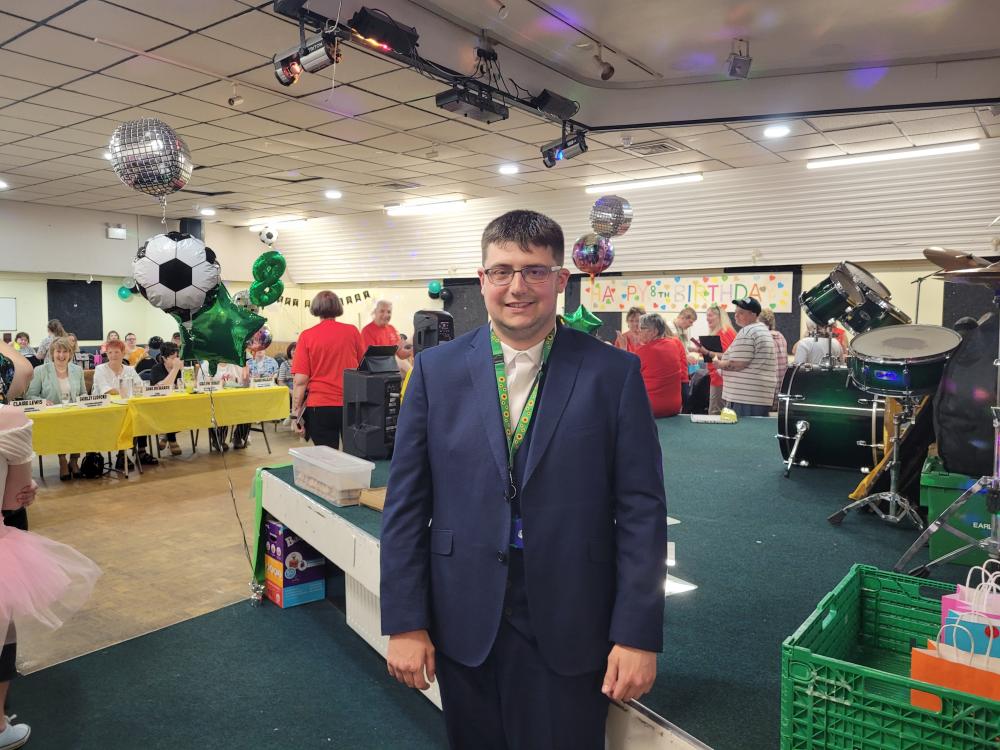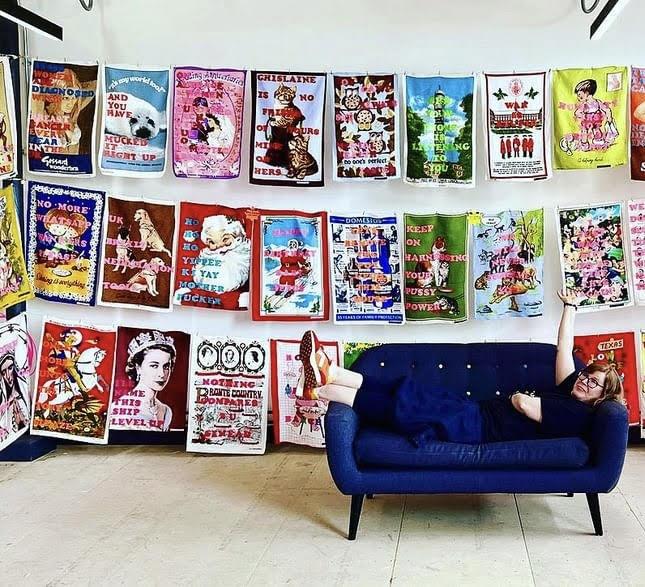For most people the idea of buying a puppy is a dream, but for people who want to be responsible dog owners - perhaps with full-time jobs, or young children - the reality is just not practical. A dog trainer in Stratton, however, seems to have found the solution - and a booming business: Crucially Canine.
Ian Daly, 43, has been training dogs since he was 16. Unfortunately, after realising that dog training wasn't the most financially stable career, he got himself a degree in biochemistry and molecular biology and went into optics.
"I enjoyed working in optics," he explains "I loved my profession – hated the industry. So, when I left optics I had an idea that I wanted to work with dogs again and I suppose I went down the traditional route of advertising myself as a dog trainer, so if people had a dog that had a problem I’d go and help them solve that problem. But trying to get 30 to 40 hours of work a week in that fashion was a complete nightmare – it’s really difficult.
"So, I ended up getting to a point where I thought, ‘I’m going to stop this and get back into optics.’ But I was a training a dog at that point – a really nice little boxer that was a rescue but had some fear-based aggression issues, which we got over – and the owner of that dog turned around and said, ‘I really enjoyed this journey, I’ve learnt loads about the dog but wouldn’t it be great if dogs came trained?’ And that was the lightbulb. I thought, 'I can do that'. Then it was just a case of throwing my hat in and seeing what happened.
“I went out and bought four puppies as if they were going to be my own – fully aware that if it didn’t work, I’ve got four dogs. So, I trained them as if they were going to remain my own; toilet training; no jumping up; sit; lie down; recall whistle; stay; drop; leave; environmental training – trains, buses, cars, parks, kids, ducks, swans.
“I never had any sophisticated advertising programme – I was my own advert. I just did the training and took the dogs out and by the time they were 14-weeks-old I was getting on to a bus with four 14-week-old puppies all walking perfectly to heal, sitting down and people were asking, ‘How?’. I handed out business cards and said they’re available trained, and those four went. So, I made a little bit of money and bought four more and those four went – then I bought four more."
On the one hand you could call Ian a dog trainer by trade, but he is currently the only person in the UK buying puppies for clients and training them. It was after his third batch of puppies that word spread, and the calls came in from people asking for specific breeds for Ian to buy and train on their behalf. On top of this he has also bred three litters from his own Black Russian Terriers - he has five [pictured] - and has sold some of those pups to willing buyers for £5,500.
"What I try to do is not put people off having a dog but find a dog which is most suitable to them. When I go to buy a dog for people, I buy it as if I’m buying it for myself, so I think, 'What do I want in a dog?'
"[As a breeder] What I do a bit differently to other people is I offer a certain number of buying options. Obviously, they can buy the dog at eight-weeks-old with no training whatsoever but then they can buy it fully trained if they want to. I’ve got three levels of training: bronze [14-weeks], silver [18-weeks] and gold [22-weeks]."
Whilst it might seem shocking that a guy selling puppies for up to £5k has no ‘official’ training qualifications he points out that trainers like Victoria Stilwel (It’s Me or the Dog) doesn't either. What Ian does have, however, is a wealth of experience, happy customers and a "natural affinity" with dogs.
"I made a decision that I wasn’t going to pay into the coffers of any of these training agencies that I didn’t actually believe in. I looked at the courses from a scientific point of view, I decided to do everything with evidence-based learning and make my own way forward. I wasn’t prepared to put money into a course that I didn’t believe in.
"This is the thing about dog training which is good and bad; there is no governing body and it’s not a protected title. All you need is business insurance. So as long as you have business insurance you can be a dog trainer and then it’s just a case of can you do what you say you do."
Even if you’re willing to cough up the cash for one of Ian's premium pooches, - he’s had people wait for up to three years for one of his Black Russian Terriers - Ian’s not an easy seller. One of his biggest pet-peeves (putting it politely) is irresponsible dog breeders. With this in mind Ian decided to lead by example.
“When I go to buy a dog for people, I buy it as if I’m buying it for myself, so I think what do I want in a dog? For instance, say someone wanted a Rottweiler, I would think ‘What do I want in a Rottweiler?’ I don’t want it to be overly big, I want the breeders to have the mum, the dad, hip scores, elbow scores.’ And because I can be more dispassionate about it, I am more than happy to say no – I am quite happy to walk in and see a box of puppies and take none of them. Because most people go puppy blind and they’ll get the one with the wonky leg or gammy eye because they feel sorry for it but all that happens in reality – and the horrible reality – is that person who’s bred it just thinks ‘That’s a load of puppies sold, let’s make some more’ rather than ‘We got lucky selling that one, maybe we’re not such good breeders and should stop’. It’s only that kind of attitude that will stop the over-breeding of dogs.
"The reason why I chose Black Russian Terriers initially is because I’d never heard of them. So, before I was looking at Giant Schnauzers, Briards, Bouviers, and as I was researching I came across the Black Russian Terrier and I thought, ‘They’re big, they’ve got an ego – that’s me’ [laughs]. I had such a hard problem getting them in this country because of bad breeders – they told fibs about the dogs and I could see right through it – so I imported all of mine from very reputable breeders in Russia. I was asked to breed by a couple of people and thought, 'No!', until I thought, ‘Hang on, why don’t I do it the way that I think it should be done? I had such a problem getting hold of one because of bad breeders so why don’t I do this.’
"In terms of my litter, for example, my very first question to them is: Why the Black Russian Terrier? You kind of grill them a little bit. I’ve had people turn around and say, ‘I didn’t expect to be interviewed’ so I tell them ‘Then you’re not having a puppy’ because I want to know where my puppy is going.
“I would never say my way is the only way, but what I am saying is that because I can do it dispassionately, I stand a better chance at making a better decision for you.
"If people want to see something demonstrated it’s by me, if people want to ask a question, I’ll answer it. It’s not palmed off on to anyone else – it’s me and me alone. And for that reason, I don’t want it [Crucially Canine] to get any bigger than it already is. It might sound big-headed but quite frankly I wouldn’t trust anybody else to come in and do it. I want to know that it’s done properly.”
As a self-employed businessman, Ian has landed his dream job admitting that one of the best parts about his job is being around puppies, and his own dogs, all day. “Who doesn’t love puppies?” he says. So, if Ian is training the puppies do the new owners not miss out? “You get the puppy-ness, but you get it in a controlled fashion,” he explains. “You’ll still see ‘the little bugger’ but you’ll be able to control them by issuing a command.
“In terms of the bonding process there’s this big misconception of ‘one dog one master’ – a lot of people seem to have this idea and it’s not the case.
“It might sound very flippant but it’s a good example: blind people don’t train their dogs. So, would anybody say that the bond between a blind person and their guide dog is diminished because they didn’t train it? No. That bond is absolutely rock solid.
“The bond with a dog is based on trust, love and repetition to a routine. Dogs need love, attention, care, time away from work. When people ask me, ‘Will I bond with my dog?’ the answer is ‘Yes, always’ as long as the dog trusts you and you trust the dog.”
Whilst Ian admits that, yes, most days he is living in a puppy paradise, there are both pros and cons to the job. “A typical day for me starts at 5am in the morning,” he says earnestly. “It’s back and forth all day. The training is constant and that’s why the pups can become so well behaved.
“A lot of people say, ‘Wow your job’s amazing, you’re with dogs all day’ and yeah it is but three quarters of it is picking up poo [laughs]!
“But, my favourite thing about I do is that it allows me to spend time with my children. If you essentially take dogs out of it – which is very emotive because they’re lovely – and put it down to being a self-employed service provider, it means I can structure my diary and spend time with my children.”
For further information visit www.crucially-canine.co.uk










Your Comments
Be the first to comment on this article
Login or Register to post a comment on this article